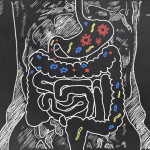By David Blyweiss, M.D., Advanced Natural Wellness
Most of the women that come to see me are worried about two things: breast cancer and osteoporosis.
Now, these are both important concerns. But women, especially those on the other side of menopause, should be paying much more attention to a major threat that affects another area of their body.
In fact, it’s the No. 1 killer of women in American. And it’s quite possible you wouldn’t even recognize its symptoms.
So what is this sneaky disease that kills 267,000 women every year?1
It’s heart disease.
Why all the fatalities? Well, the reason is twofold. First, heart disease has always been thought of as a man’s disease. This means many doctors and emergency room staff don’t even think of a heart attack when they’re treating a woman. Women also are less likely to be given the same standard medications or be referred to a cardiologist than men.
The second reason is that a heart attack can trigger some very different symptoms in women.
Yes, there can be chest pain, but a woman may also experience pain around the shoulder, neck or jaw. Their symptoms can also be vague, like nausea and fatigue. Sometimes women notice they just aren’t feeling well and think whatever it is will pass, so they delay getting treatment.
The World's Quickest Solution for Ending Prostate and Urinary Misery
This has recently been revealed to be one of the only real breakthroughs in prostate health.
The seeds of a strange fruit (sometimes called "Chinese Apples") hold powerful phytonutrients that are a revolution in prostate health.
In fact, UCLA and Veterans Administration research have now proved this to be true.
Not only that, but it may be the worlds quickest solution for ending prostate misery.
Simply stated, these phytonutrients represent a huge step beyond beta sitosterol, saw palmetto, and other phytosterols alone.
Simply click HERE if you want to have fast prostate relief...restful, uninterrupted sleep...no more constant "urges to go"...enhanced virility...and optimal prostate support for life.
And, as a result, women are less likely to survive a first heart attack. When they do, women are twice as likely as men to die in the first year after a heart attack.
But you don’t need to become one of the statitistics. A little knowledge and some preventative action can truly make the difference between life and death.
It’s important to know that a woman’s risk factors for heart disease are different than a man’s. They can include being postmenopausal, experiencing stress—especially job stress—in later life. Another factor is being overweight—especially if you carry excess abdominal fat. And yet another is taking hormone replacement therapy.
Fortunately, it’s never too late to take steps toward a healthy heart. Here’s my 8-point protocol for any woman concerned about protecting her heart:
- Know your numbers. Get a baseline for your cholesterol, triglycerides, c-reactive protein, homocysteine, fibrinogen, blood pressure and blood sugar levels.
- Trade in highly processed and refined foods for fresh fruits and vegetables. Eat a minimum of 5 servings every day.
- If you’re overweight, find a reduced calorie food plan that you can live with on a long-term basis. For most people a gluten and dairy free diet will not only drops pounds of fat but cholesterol and triglycerides as well.
- Start walking. Aim for 10,000 steps each day. If you’re currently sedentary, try to walk 10 to 15 minutes a day and gradually increase your time.
- Find healthy ways to cope with stress. Meditation, yoga, tai chi, spending time with friends, writing in a journal—experiment to find what works for you.
- If you smoke, stop! Nothing will set you up for a heart attack faster than cigarettes.
- Start taking 3,000 mg of supplemental fish oil daily. Numerous studies show fish oil helps reduce the risk of heart attack, stroke, and atherosclerosis by reducing inflammation and clotting.2 It also lowers triglyceride levels. And, if you’ve had a heart attack, fish oil appears to reduce the risk of suffering another one.
- Add 50 mg of Co-Q10. Produced by the body for cell growth, this vitamin-like substance is essential if you’re taking a statin drug. But even it you aren’t, Co-Q10 provides the cells in your heart (as well as the cells throughout your body) with much needed energy and improves the health of blood vessels.3
Remember, whatever your age, the time to prevent heart disease is now. This 8-point protocol can help you beat the odds.
References:
- Heart Disease Statistics. The Heart Foundation. www.theheartfoundation.org/heart-disease-facts/heart-disease-statistics/
- Breslow JL. n-3 fatty acids and cardiovascular disease. American Journal of Clinical Nutrition. 2006;83:1477S-1482S.
- Hamilton SJ. Coenzyme Q10 improves endothelial dysfunction in statin-treated type 2 diabetic patients. Diabetes Care. 2009;32:810-812






